Maintaining a healthy garden doesn’t mean you need to rely on synthetic chemicals or expensive store-bought solutions. In fact, some of the best pest control ingredients may already be sitting in your kitchen. Whether you’re dealing with aphids, mites, ants, or fungal diseases, there are simple, effective, and organic ways to protect your plants all using common household items.
Here are five powerful, homemade organic pesticides you can make with kitchen ingredients to keep your garden thriving naturally.
Garlic-Based Insect Spray
Garlic is more than just a flavorful addition to your meals it’s also a natural pest repellent. Its strong aroma and sulfur compounds are effective at driving away many soft-bodied insects like aphids, thrips, and whiteflies.
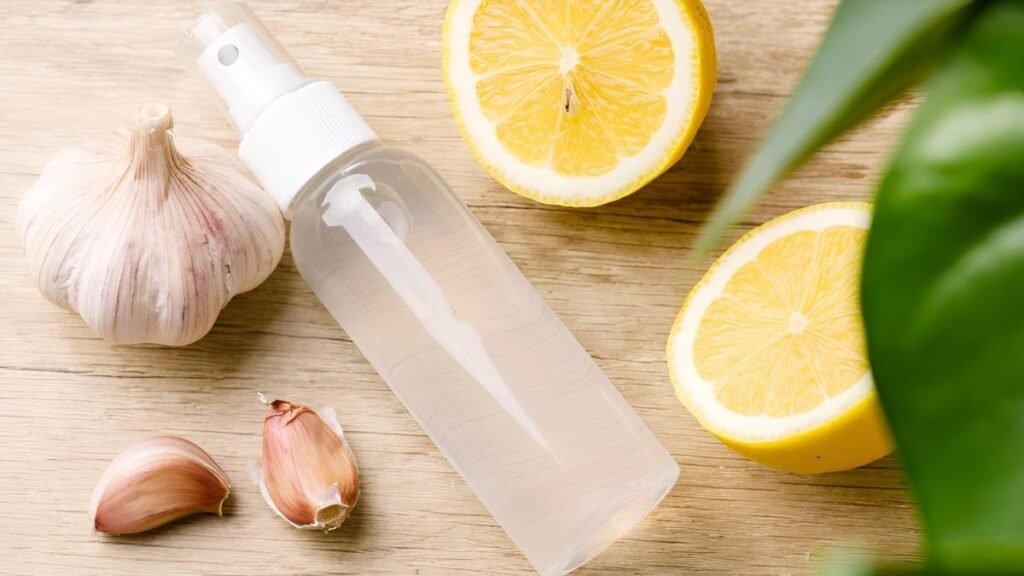
To prepare this spray, take a full bulb of garlic and peel the cloves. Blend them with two cups of water to form a paste. Let it sit overnight to allow the garlic oils to infuse. Strain the mixture through a fine cloth or sieve and add another liter of water. For better effectiveness, you can also add a teaspoon of liquid dish soap, which helps the spray stick to the leaves.
Spray this mixture on your plants in the early morning or evening. Repeat every 3–4 days or after rainfall. The strong smell may fade quickly, but its effects on pests will last longer.
Chili Pepper Spray for Insect Control
If garlic doesn’t do the trick, chili peppers just might. The compound capsaicin in hot peppers irritates and repels many garden pests including beetles, caterpillars, and ants.
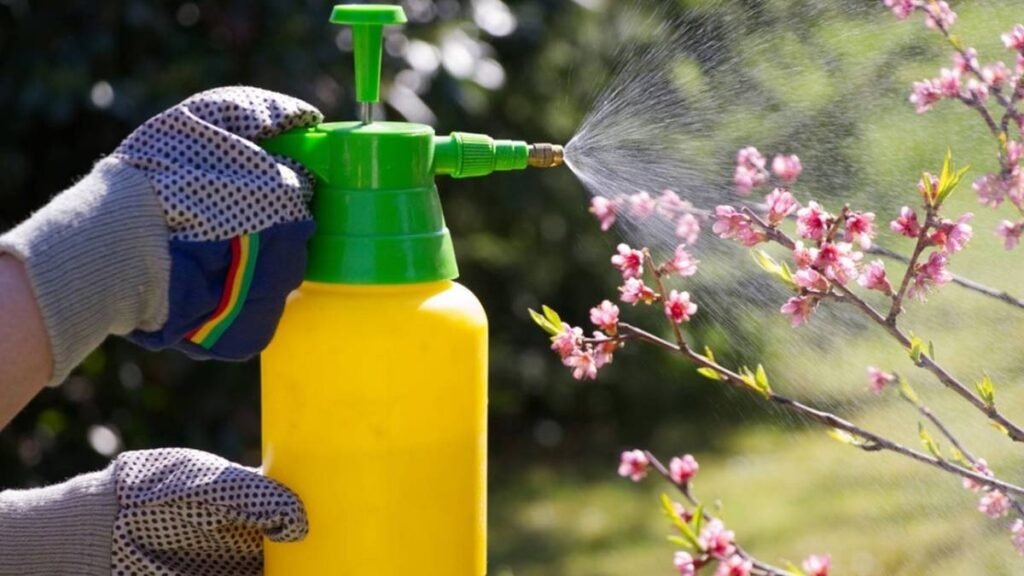
To make this spray, blend a few fresh or dried chili peppers with two cups of water. Boil the mixture for about 10 minutes, then let it cool completely. Strain it and pour it into a spray bottle. Add a few drops of mild dish soap to enhance its effectiveness.
Wear gloves while handling this spray, as it can irritate your skin and eyes. Spray directly on affected plants, avoiding times of high heat or direct sunlight. It’s strong, natural, and quite effective against a wide range of pests.
Onion-Garlic Combo Spray
While garlic alone works well, combining it with onion can create a more potent pesticide. Onion contains sulfur compounds that add an extra layer of defense, making it a strong repellent for insects like aphids, cabbage worms, and leafhoppers.
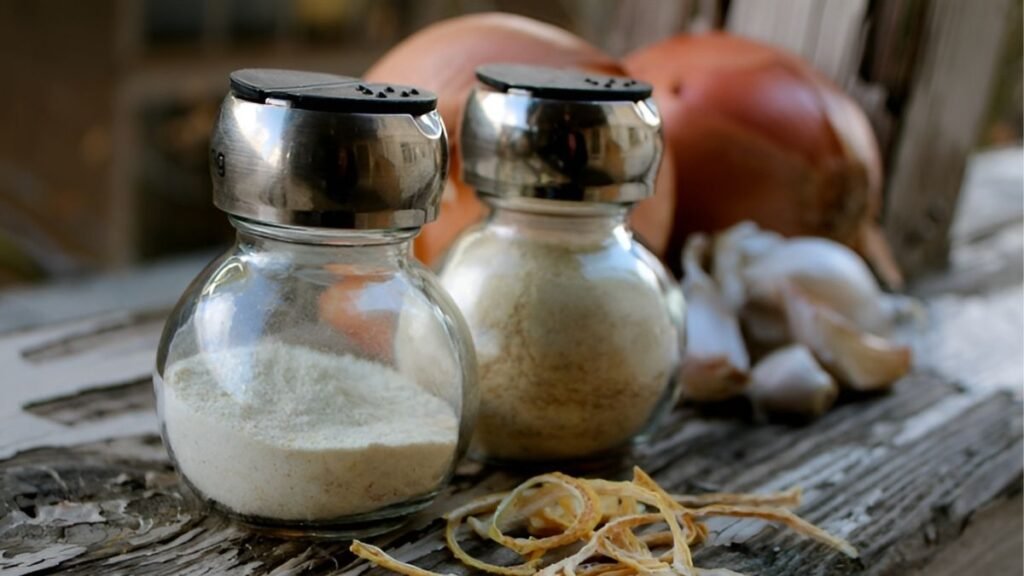
Chop one medium-sized onion and one full garlic bulb. Blend them with one liter of water until smooth. Let the mixture sit for 6–8 hours. After that, strain and pour it into a spray bottle. Add one teaspoon of liquid soap to help the solution adhere to plant surfaces.
Apply every few days or after watering. This blend has a strong odor but fades quickly, and your plants will thank you for the natural protection.
Vinegar Spray for Ants and Fungi
White vinegar is a powerful kitchen ingredient that also works wonders in the garden. It helps eliminate ants and can even control some types of fungal growth on plant leaves.
Mix one part white vinegar with three parts water. For added effectiveness, stir in a few drops of dish soap. Shake well and spray it on the stems and leaves where pests are visible.
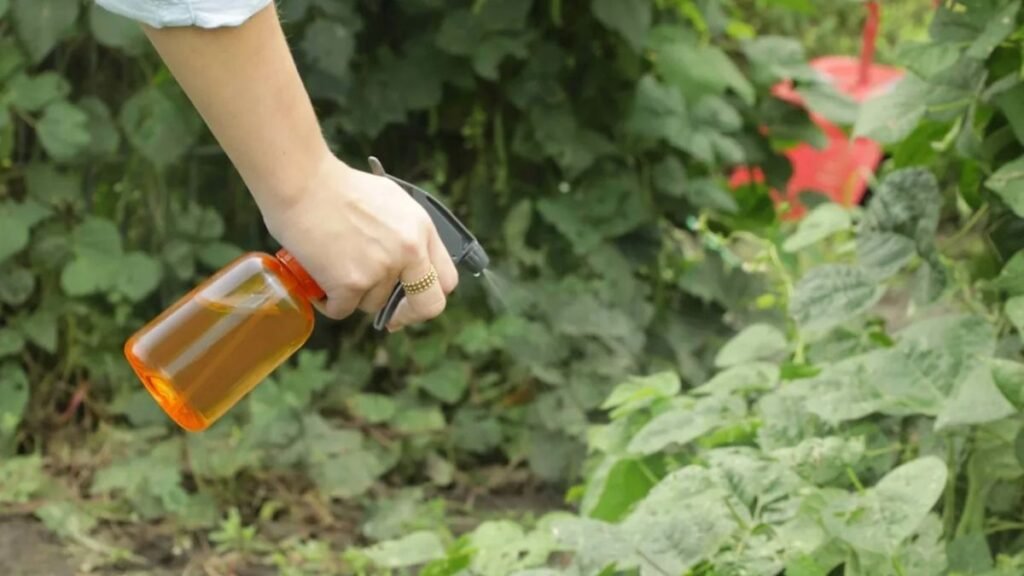
Caution is important here vinegar is acidic and can harm plants if overused or applied undiluted. Always test a small part of the plant first before spraying the entire area. This solution works best on pests that gather around the base of the plant or in soil.
Baking Soda Spray for Fungal Infections
While not an insecticide, baking soda is incredibly useful in controlling fungal issues like powdery mildew, which is a common problem in home gardens. It’s a gentle solution that alters the pH level on leaf surfaces, making it hard for fungus to survive.
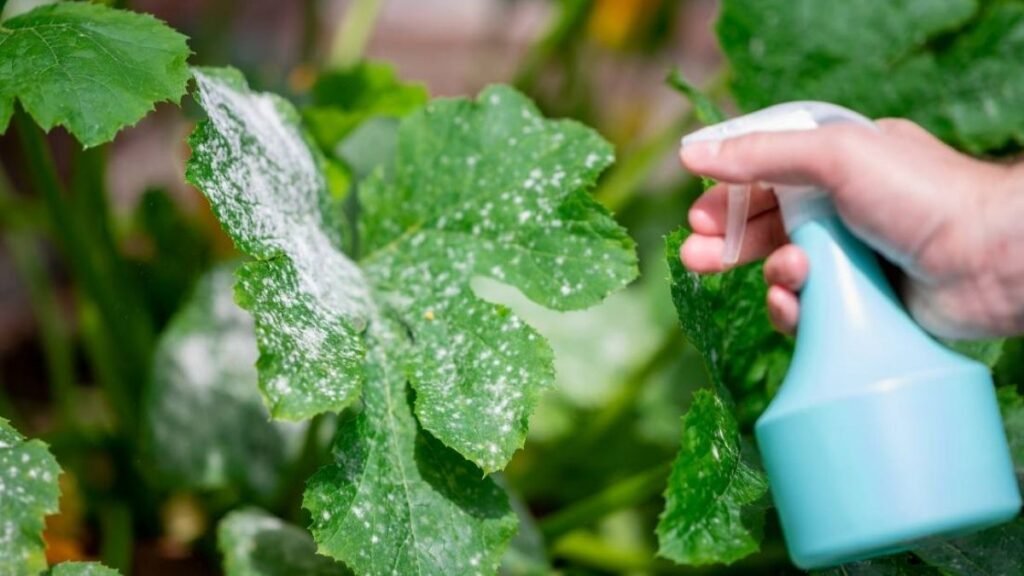
To prepare, mix one tablespoon of baking soda with one liter of water. Add half a teaspoon of mild dish soap to help it spread evenly. Shake the bottle and spray directly onto affected leaves.
Repeat this treatment once a week or after rain. It’s a simple way to prevent or reduce fungal infections without resorting to harsh chemicals.
Final Thoughts
Nature often provides the best solutions and sometimes, they’re right in your own kitchen. These five DIY organic pesticides are safe, affordable, and effective alternatives to chemical-laden products. With just a few ingredients and minimal effort, you can protect your garden, maintain soil health, and avoid introducing toxins into your home environment.
Keep in mind that natural solutions may take a little longer to show results and may need to be reapplied more frequently than commercial pesticides. However, the benefits safer food, healthier plants, and a cleaner planet are well worth it.
Experiment with these recipes, adjust the ratios as needed, and always observe how your plants respond. Over time, you’ll develop a natural pest control routine that works perfectly for your garden.
Happy gardening!

